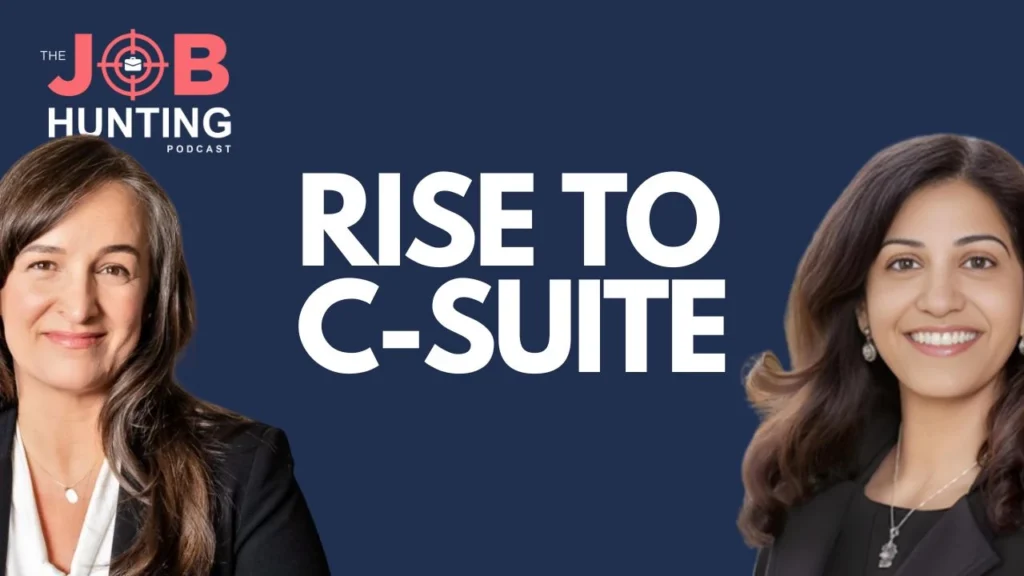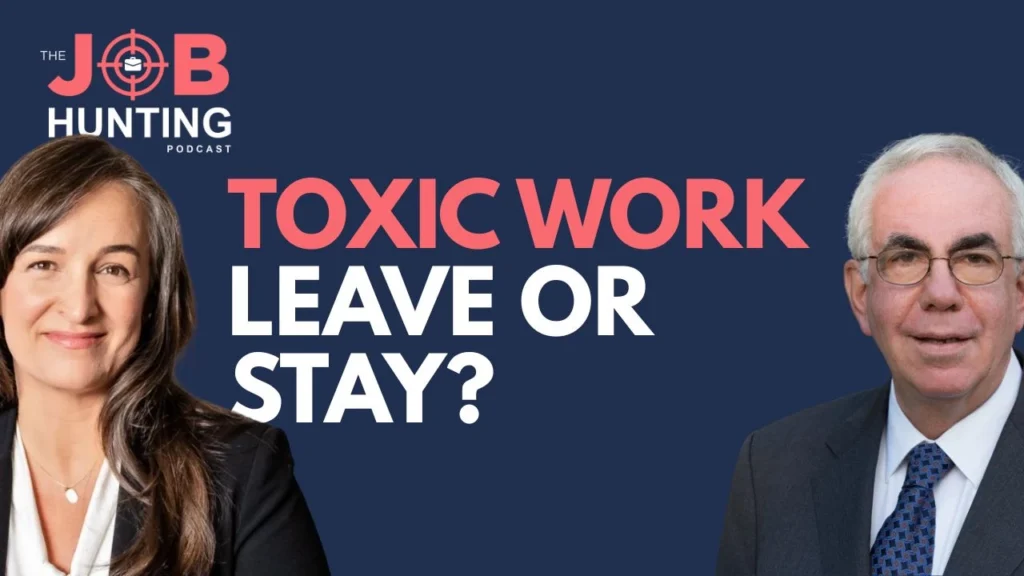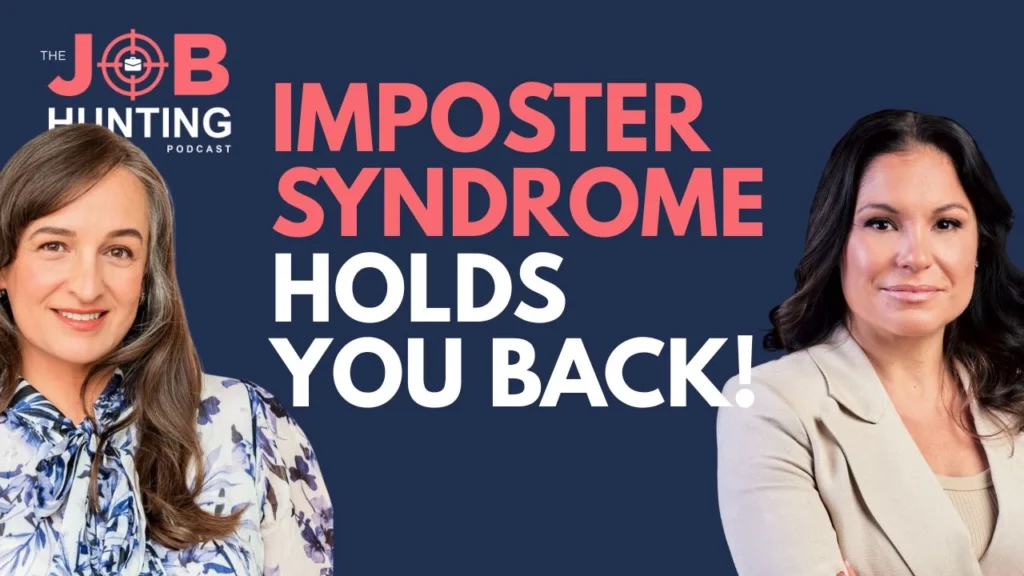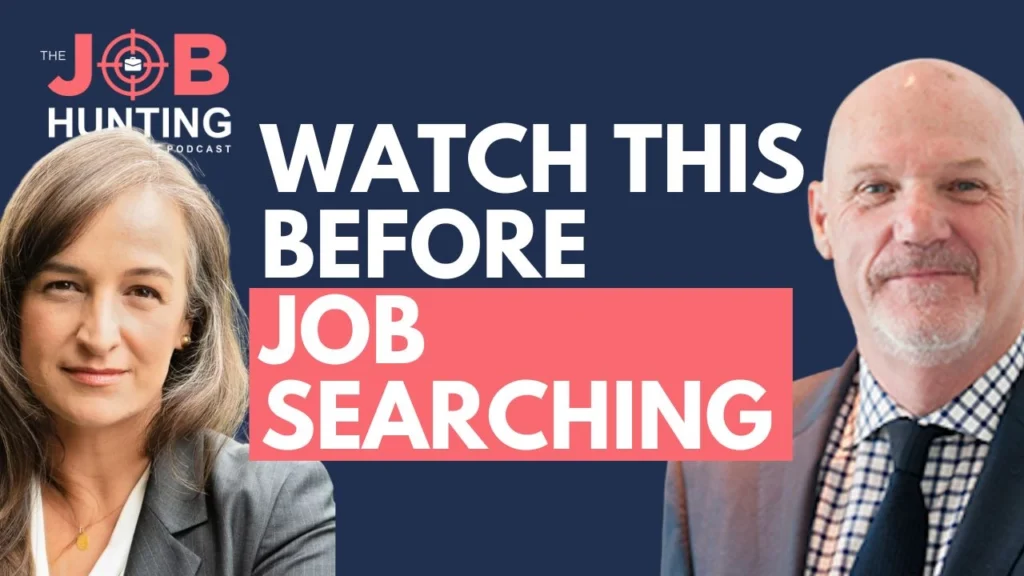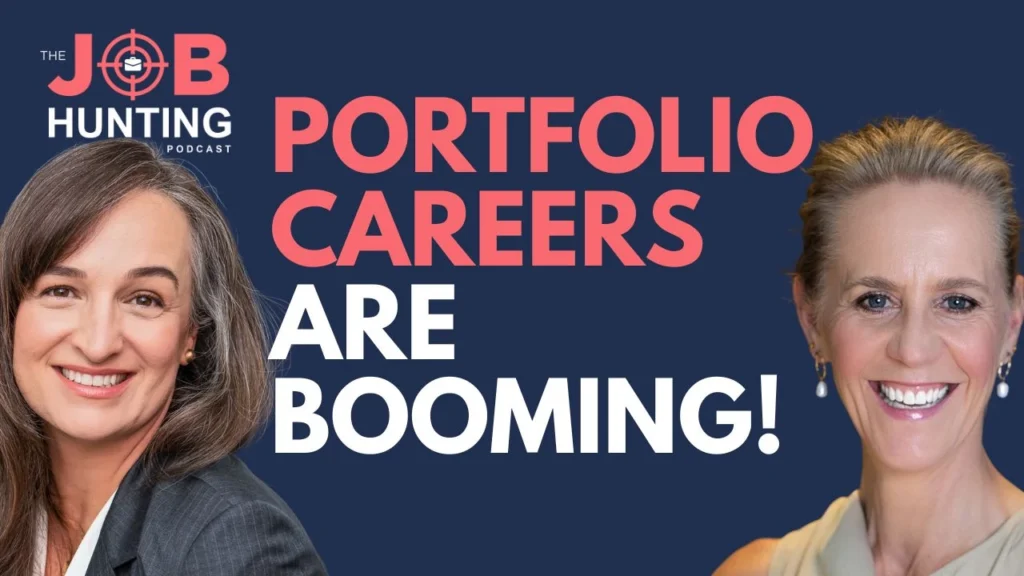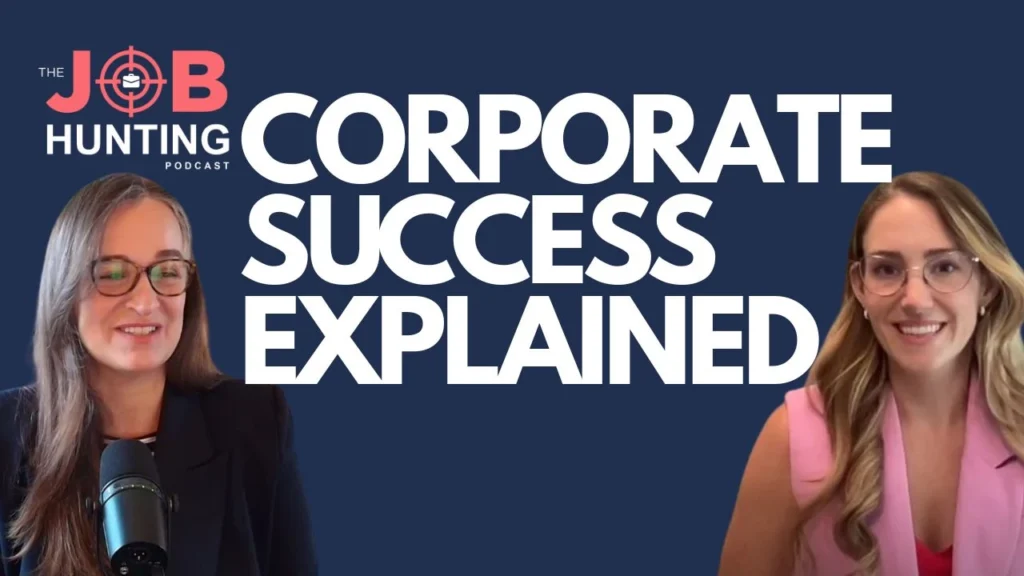Failing Your Job Search
Episode 220 - Job Search Not Going Well? Here is Why and How to Fix It
In today's dynamic job market, the path to career success is often winding and unpredictable. As the host of The Job Hunting Podcast and an experienced career coach, I have dedicated my career to helping professionals navigate this labyrinth with confidence and strategy. Here, I share my insights into transforming your job search from a daunting task into an empowering journey.
Recognizing the Recruitment Journey
Understanding the recruitment process is pivotal. It's not just about applying for jobs; it's about recognizing the milestones and bottlenecks that shape your career path. This awareness is the first step toward taking control of your professional destiny.
Embracing Proactivity in Your Career
The job market rewards the proactive. In my experience coaching clients ranging from mid-thirties to their seventies, those who actively manage their careers tend to achieve greater long-term success and satisfaction. They're better positioned for the decisions that matter most, especially as they approach the latter stages of their careers.
Conversion Rates as a Job Hunting Metric
A key concept I emphasize is the 'conversion rate' – the frequency at which your job applications lead to interviews. This metric is a powerful tool for identifying strengths and weaknesses in your job search strategy, allowing for targeted improvements.
The Value of Coaching and Mentorship
As a coach, I've seen firsthand the transformative power of guidance and mentorship. A good coach doesn't just offer advice; they provide a structured approach to career advancement, aligning your professional goals with the realities of the job market.
The Risks of Reactive Job Hunting
A common pitfall I observe is reactive job hunting – applying for roles without a strategic plan or pursuing further education without assessing its impact on career goals. This approach often leads to frustration and stagnation rather than progress.
Tailored Approaches to Job Hunting
In my coaching practice, I advocate for customized job hunting strategies. Whether it's taking a step back to reassess your goals, treating job hunting as a side project, or committing to it full-time, each approach requires a unique set of tactics and mindset.
My goal, both as a podcast host and a career coach, is to empower individuals to approach their job search with clarity and confidence. By understanding the nuances of the job market and embracing a proactive approach, career success is not just a possibility but an achievable reality.
I invite you to dive deeper into these strategies and explore how a structured, personalized approach to job hunting can transform your career. Learn more about my coaching programs and gain further insights.

About the Host, Renata Bernarde
Hello, I’m Renata Bernarde, the Host of The Job Hunting Podcast. I’m also an executive coach, job hunting expert, and career strategist. I teach professionals (corporate, non-profit, and public) the steps and frameworks to help them find great jobs, change, and advance their careers with confidence and less stress.
If you are an ambitious professional who is keen to develop a robust career plan, if you are looking to find your next job or promotion, or if you want to keep a finger on the pulse of the job market so that when you are ready, and an opportunity arises, you can hit the ground running, then this podcast is for you.
Timestamps to Guide Your Listening
-
03:38 – First thing to do – start your job search
-
08:07 – Career planning
-
13:30 – Leave the competition
-
17:44 – Treat it like a side hustle
-
20:03 – Treat it like the most important project
Transcript
Welcome. I try my best to turn that motivation that made you click to listen to today’s episode into action by educating you on what it takes to make your career dreams come true. And if you want to take it even more seriously, I have a step-by-step framework that you can access through my group coaching program or my private coaching, and you can learn more about it on my website.
So seek out those links in the episode. Show notes. I think of job seeking in different levels because when you take a look at the recruitment journey and the time it takes for you to find a job and the job hunting activities that you need to do, you can pinpoint several milestones or bottlenecks that really define whether someone becomes very good at this and takes control over their careers and, really take job advancement career planning, seriously or, they do this from time to time in a more reactive way, more than a proactive way. That is what I would probably recommend for most people. Those who take a more proactive way, they’re more disciplined in their approach to career development. They usually earn more, they get paid more. They have better control over their career outcomes in the long term, especially at the tail end of their careers, such as when they’re making decisions about stepping down from full-time employment.
When to do their retirement, when to start thinking about retirement. So if you have more of a proactive approach to your career, it’s definitely easier at the tail end. Believe me, my clients are more mature. My clients are from, any age between mid-thirties to 70, and I see that every day, so let’s get started, shall we?
First and foremost, if you’re listening to this episode and you are concerned about your job search, is it going well or not? You’re interested to know in what I’m going to recommend for you to solve that problem. I’m assuming that you are looking for a job. If not right now, I’m assuming that at least you plan to do so in the near future. You see that’s a very easy assumption to make based on all of the research that’s coming out recently, we’re at the beginning of 2023 and we know that in developing countries like the us, the UK, Canada, Australia and so on people want to change more than 50% of the workforce is thinking about changing jobs.
So the first thing you need to do is this. Get on with it. Start your job search. Okay? And at this stage, all you want to do is get your job search off the ground. If you haven’t started that, if you have already started your job search, then make sure that you apply four, about five to 10 jobs. in the coming weeks.
This will help you assess your conversion rate. I talk about conversion rates all the time, and there are different types of conversion along the path of recruitment. There’s conversion from job application to phone screen, from phone screen to interview, from interview to job offer. And then, you know, there could be several little additional touch points.
Even more than the conversions that I’ve mentioned just now, depending on the type of role that you’re going for. So before you decide what you do next, where do you need to invest your time and put money towards in terms of achieving your goals? Just get on with it if you haven’t started, and if you have started, make sure that you send out a few applications to see if they’re converting.
So sometimes I have people that book consultations with me, and the first thing that I ask them is, what is your conversion rate? How many job applications did you apply recently? And how many of them converted? And sometimes they sent six and three converted, and that’s a 50% conversion rate.
Sometimes they send six and none of them converted. Well, there is a problem there with the job application and if the bottleneck is in the interview then that’s where we need to focus on. So, you know, it, important for, job seekers to understand and take control over the competition, over the process of applying for those roles and understand it.
And the best way to do it, it’s to just do it.
So what I’m proposing here is that you assess your results so far and discuss it with a coach or a mentor. A mentor that understands job hunting. You know, sometimes people have great mentors that understand their profession, but not necessarily applying for roles, career advancement, promotion.
So find a mentor that can help you with that, or hire a coach that can support you with that. What I would recommend you not do is to let’s say you didn’t get a job interview. You didn’t receive a job offer, so the first thing you do is you enroll in an MBA, or you enroll in an expensive executive training, right?
So if without thinking, why am I doing this? And is this really necessary for me to achieve the results that I want? So many times people come to me after their frustrations because they, for one reason, another didn’t feel the confidence to apply for roles, or they applied and they didn’t get any conversion, and they just believed that what they needed to do is more study, more education, an expensive one, because business education is very expensive and I think that business education serves a specific purpose, which has to be aligned with the goals and your career trajectory and sometimes it’s not aligned and it’s not necessary at all for you to do that. So I’m not against executive education, professional development at all. In fact, there are many clients of mine where we are working on right now, this week and next week, in fact on identifying the best professional development programs for them.
But that’s because they have already worked on their career plan the steps that they need to take. And they know that one of those steps in order for them to accelerate, expedite, or learn something that they need to learn to advance in their career comes from specific training. Okay.
Alright. The other thing that you need to consider is this. If career advancement, career change, or a new job is important to you, then planning for it, spending time making it happen needs to feel energizing to you.
If it does not feel energizing, then you need to reflect on why. Because if you want to change, all you need to do. Get on with it, and if you don’t want to, Then get off the race. Maybe it’s not right for you right now. If you want a change, all you need to do is start, you know, sending that first job application, talking to one person in your network.
It doesn’t have to be perfect. It doesn’t have to be crisp and clear, innate and all of that. It just needs to be done. It needs to be the first step. Once you take that first step, then you can take a second one, and this time you review your application. You learn from, you know, the first one, the mistakes that you’ve made.
See what can be improved. It’s all about getting started with the mindset that you will learn things along the way. So don’t wait until you see a perfect job and apply for that one. Many people want to book consultations with me and you know, if you go to my consultations page, it will see that. I say, look, if this is urgent, you can email me and I’ll make sure that we find the time to, I’ll try my best to find a time to, see you as soon as possible if it’s urgent. But sometimes people will email me and say something along the lines of, look I have been with the same employer for 10 years. I’ve just seen a perfect job and ideal job advertised for me.
It’s my dream job. Can you see me tomorrow? Because the application, you know, I need to do that, you know, in a few days. I don’t think the person realizes that that is almost as an impossible task. Usually what I tell this person is, look, you are an outlier just play to your strengths and do the best job that you can.
But as a coach, I will need more time with you to understand you, to help you develop this great job application, and I cannot do this overnight. It’s too hard. It’s too much. Plus, I’m, as you know, if you’ve been trying to book with me, I’m very busy, . And you know, there are many times that I will bring consultations forward because they are really urgent in my view. For example, somebody’s saying, look, I just received two job offers. I need to talk it through with somebody that is for me, that’s urgent. Or if they’re about to sign a contract, but they want to workshop it with someone before they sign.
We once were able to raise the annual salary, but I, think it was $20,000. And that was, you know, such an amazing result for the person that had booked a consultation. So, yes, those things are urgent and they make a real difference. So I don’t want you to wait until you see a perfect job and apply for that one.
I don’t want you to change jobs, career or advance in your career into more senior roles just because you feel you have to. Right? You are competing with other candidates who really want this job and that attitude of applying just because you feel it’s what you need to do may come across somehow.
It’s something you can’t really pinpoint exactly what it is, but there is a feeling there from the panel. The difference between a, a job candidate that’s really high energy and wants to progress in their career and somebody that’s doing this as a sense of duty and responsibility and their heart is not in it.
So you are going through many interviews. You’re going through many job applications, not knowing why, and I’m telling you it’s important that you figure out what’s going on inside you. It may be that you need to step off that race for now until you figure that out. And from my experience coaching clients, it could be burnout, it could be that you are too exhausted to put the energy into your job search, let alone the other things you know in your life as well.
I also, you know, have workshop with clients and then they have realized that they really hate what they do , and therefore that next job, you know, they’re applying for something similar over and over again and it’s not converting. And the truth is their heart is not in it. That’s not really what they want to do.
And then also, you know, they don’t love what they do, but they feel that they need to earn more somehow. And so they want to move out of something that they actually enjoy doing because it’s not paying well, usually I have clients like that in the nonprofit world and it’s heartbreaking for them.
You know, it’s really a tough call and It backfires, right. So it backfires for them a lot because in all honesty, they don’t want to go anywhere. They just would prefer to have a better play and, who wouldn’t. Right? and it’s a pity that some sectors, as wonderful as it is to work in them, they don’t offer a lot of.
incentives in that sense.
So at this moment, you know, there are three ways of thinking about your job search if it’s not going the way that you envisioned. You can commit to one of the three paths that I’m going to suggest to you. But remember, you know there’s a spectrum here, so it’s not like there’s this and that and that, and you have to choose.
But I want you to consider these three alternatives cause when I’m talking to you on this podcast, I don’t actually know you and I want you to have the discernment and a critical thinking to understand that these are ideas, these are tips, and if you want a more personal advice, you would have to reach out to me or another coach to seek that out.
But here we go Well, let’s talk about the three ideas that I have for you. If your job search is not going to plan, number one, leave the competition. Come back later. It’s never too late. Don’t worry if it’s not the right time for you right now, it’s not a priority in your life. You can’t dedicate time to it.
Don’t do it because if you do it, you know more or less it will be harder for you. You are competing against people that really need this job. Really want to do it now, really are high energy and ambitious. And if you decide that job hunting is not for you, and none of these things that I discussed seem fun or exciting and you know, the outcome, is that you’re not going to progress to the next level.
So it’s the truth and it’s fine. I don’t want you to beat yourself out about it. Y ou do you, Just take a break and come back at another time, or don’t come back at all. Either way, you know, you have to accept a few things are not, you know, going to be right for you and there are other things that will be right for you and you need to reflect on that and figure out what they are.
Also, it could be that there are other things that are more urgent in your life, and sometimes clients have reached out to me, I have mentioned this in the podcast before, and they say, look, I really want to be coached by you, and you know, I need help with a coach because I don’t have time to do it myself.
And that’s not the sentiment. That’s not how coaching works. Coaching means you will have guidance and you will make your life easier. You don’t have to worry so much that sort of whole bunch of ideas. They don’t need to live in your head. Somebody’s going to come with a framework and a, a strategy that’s has been tested, that’s been successful, and it’s such a relief for clients once they start working with a coach that knows what they’re doing.
Right, but it doesn’t mean that I’m gonna do it for you. So sometimes I have not accepted clients that just couldn’t dedicate to job hunting. So things that get in the way are like family, babies, toddlers, house renovations, divorce, moving death in the family, iVF treatment, so many other things. And sometimes I have accepted a client that are sort of going through some big, you know, health scare or something, but I’ve done that reluctantly and I’m, you know, I just, we took a gamble, you know, and sometimes it works and sometimes it doesn’t.
I’ll tell you a time when it did, it was a client. During the pandemic and she had major, major surgery. She could not move four months and she was bedridden and I was, oh my God, am I, is this going to work? I was so worried before we locked it in. I double checked with her, you know, is this really what you think is the right.
Thing for you. And the first sessions I asked again, and in the end she just wowed me. , It was a project for her. It, you know, during a time where she was probably in a lot of pain and, couldn’t do much, it kept her mind and brain working. And intellectually she found founded stimulating. But for another client, which we also took a chance, took that risk, it didn’t work. He had too much on his plate, you know, too many other things happening personally, and it didn’t work. It didn’t work for him. So you need to think about that before making that investment in your career. Because like I said, you know, the competition is out there.
You know, there will be lots of people applying with you and you need to find the time and the energy to dedicate to this.
A second thing that you can do is treat it like a side hustle. Know and have that clarity that you are only going to dedicate a fraction of your energy and time into this project, and you can do this because let’s say, you work full-time, you can do this because you, you have a family or you’re on vacation or you know, you don’t want to, you don’t want to dedicate too much time to this.
Know that this is not the more efficient way. The smarter way, but, well, actually it is smart. You know, as long as you know what you’re doing, you know, it’s the best that you can do. Check the optimized job search schedule, which is my free resource. And there are three different weekly schedules that you can follow.
Choose the light version and see if you can adopt that one. So that you can treat job hunting as a side hustle. I do have clients, private clients and group coaching clients that are side hustlers. So the way that they do it, let’s say if they’re group coaching with me, they will be all the time that they have available is to watch the group coaching sessions, we have two of those a week. They do that. They do some of the homework, but they are not job hunting at that time the group coaching is happening. They’re just learning because they don’t have more time than that to dedicate to this. And then once the job group coaching program ends, then they will start job hunting because they can only do it as a side hustle.
That’s totally fine. That’s a great thing about the job hunting made simple program. It’s available after we finish the group coaching. They can come back to it time and time again. So, it’s perfectly fine. You might actually enjoy doing job hunting tasks, but you simply don’t have the time, and if you can’t dedicate to, you know, let’s say 10 hours every week to consistently put yourself out there, then in this case you may still want to create a strong, efficient routine as a side hustling job hunter, and know that even though you will not dedicate as much time as other candidates. Make sure that you do the investment to make it as efficient as possible. Make the best use of your time. If you don’t have a lot of time, it’s even more important. Okay.
And then the third way of doing it is treat it super seriously. Like the most important thing in your life at the moment.
The most important project that you have at the moment is job hunting. This third option is what’s going to happen for you if you, you know, want to take it to the next level super quickly. Just today as I’m recording this episode, I received confirmation from a client that he’s starting a new job and he was job hunting full-time for three months nonstop.
And he’s very senior. He’s and usually it takes longer than that for a C level executive to find another job. So treating job hunting seriously means that you commit to applying for at least one job per week. Maybe more you work on your network. every week, if not every day, and improve with each new conversation that you have.
Each job interview is an opportunity for you to review it, identifying the successful patterns applied again, each job application. Same, you know, has it been successful? If yes, let’s repeat it. If not, while let’s improve it. If that’s the case, it will move on to the next level much faster than other candidates.
So what does it mean? What do you need to work on for your job search project to make it as efficient as possible? This is for options two and three, either the side hustle or treating it super seriously , you need to know how to read job ends. You need to know how to apply for jobs online to make sure that your application is ATS compliant.
That’s the applicant tracking system, which is softwares not just one, several softwares that are used by organizations to filter applications. You need to know how to speak to recruiters and communicate well with them. Leaving a great impression you need to have a professional pitch that is adaptable to the audience that’s going to listen to it.
You need to know the most common questions that you get in job interviews and phone screenings and have answers that are ready to go. So you don’t need to, think about them on the go. You need to understand your strengths, your career drivers, your personal values, so that when you’re applying for jobs, you seek those jobs that are good for you.
Knowing the roles and salaries that you’re seeking as well, and where they are, which organizations have them, which recruiters advertise them. Understand how the recruitment process. Works, how long it takes and how to operate in it, and the different aspects of recruitment and the stages of job interviews, the different types of job interviews.
I think in my lecture on job interviews, I think we have more than 10, I can’t remember now, but it’s like we go through every single different type of job interview situation. The different formats, which organizations. , which types of formats and why, how to use technology, how to do straight to camera interviews, how to answer questions when there’s no one watching you, just recording yourself in a video and how to deal with the async communication style that’s so pervasive in the recruitment process these days.
So you know, it’s a lot . And how do you achieve all that? Well, there are two ways you make incremental improvements. Learn on the go, hit your head on the wall, you know, fail, make improvements. It takes longer, but with the right mindset, you know, that perseverance that you need to have, it’s possible.
Or you work with a coach to accelerate that process as much as you can. Make sure that you have somebody there leading you, supporting you, keeping you accountable and focused, and that you can do that in a private coaching environment or a group coaching environment with a coach that specialize in career coaching for your type of Profession.
So I, you know, I, it’s very clear you go my website, you know, I’m a career coach for people that work in the corporate, nonprofit and government sectors, and they have professional jobs. You know, I’m assuming that they’re white collar workers. They sit behind a desk, , and then they can work either at the office or remotely, that doesn’t matter. But that’s the clientele that I have, very rarely I, you know, accept coaching somebody that falls outside of that spectrum. It could be, let’s say, maybe an academic or a scientist or who else? Yeah, no, that’s it. , usually all my clients are white collar workers. . So now everyone, it’s time for you to make a decision.
What do you want to do? Would you like to step down from job hunting, at least for now? Do you want to treat it as a side hustle? Making sure that the hours that you put into it are as efficiently are allocated as possible, or would you like to treat it as an important high priority project for you and accelerate the results as much as you can.


